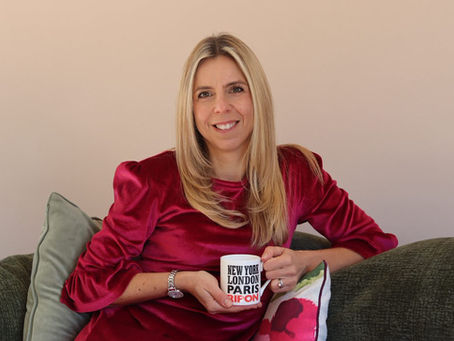top of page
Blog - All things Acupuncture and Fertility


Light Periods: What they could mean for your hormones and fertility.
Light periods? It could be your body’s way of saying something’s off. Here’s what it might mean, and how acupuncture can help.
Jul 22, 20257 min read


How to Navigate Jealousy During Infertility: A Fertility Counsellor's Guide
By Gemma Antcliffe, Fertility Counsellor Guest Blog: Fertility counsellor Gemma Antcliffe explores how to recognise, understand, and...
Jun 16, 20255 min read


A BBT Charting guide for pinpointing ovulation
BBT (Basal Body Temperature) charting is one of the most useful and underrated tools for tracking ovulation and understanding what’s...
Apr 3, 20255 min read


ITV Came to Visit- an interview about the concerns of the safety of short courses
Earlier this month, ITV visited to interview me about acupuncture training, following up on a news story highlighting a growing concern...
Dec 29, 20242 min read


2024 Publication – Supporting Post-Miscarriage Emotional Wellbeing with Acupuncture
Supporting Post-Miscarriage Emotional Wellbeing with Acupuncture I’m pleased to share that my latest article has been published in the...
Nov 11, 20242 min read


Fertility Acupuncture - What To Expect
Fertility acupuncture Thinking about trying fertility acupuncture? Not sure what expect? Is it backed by research? Or is it woo woo?...
Oct 31, 20246 min read


The Vaginal Microbiome, and the Impact on Fertility Outcomes
The vaginal microbiome and how can it influence fertility outcomes. As a fertility acupuncturist specialising in complex fertility cases,...
Jun 27, 20245 min read


A Journey to Parenthood: Overcoming Miscarriage with Fertility Acupuncture
After experiencing the heartbreak of recurrent early miscarriage, Victoria sought out the support of fertility acupuncture.
Oct 16, 20231 min read


PCOS: Expert tips to improve your PCOS symptoms
We're nearing the end of PCOS Awareness month, and it's the perfect time to shed light on this complex condition that affects so many...
Sep 26, 20235 min read


Can acupuncture improve IVF outcomes? New study shares exciting results
Are you exploring the possibility of using in vitro fertilisation (IVF) to expand your family? If that's the case, you'll definitely want...
Aug 25, 20234 min read


Toxins and Infertility: simple changes to make today to improve your hormonal health.
Toxins impact fertility They are all around us, inside our homes, in the foods we eat and in our environment. They are substances that...
May 18, 20236 min read


Acupuncture: The game-changer for optimising your fertility.
Struggling with fertility? Discover how acupuncture can help to Overcome Infertility Challenges and Enhance Your Reproductive Health. As...
May 3, 20235 min read


My top 10 tips for managing Endometriosis
In support of endometriosis awareness month, I wanted to share my recommendations to those going through the diagnosis of endometriosis....
Mar 7, 202310 min read


Can you improve your fertility by improving your vaginal microbiome?
The vaginal microbiome The vaginal microbiome is an internal ecosystem, colonised by mixed communities of billions of bacteria. A healthy...
Oct 9, 20223 min read


Fertility acupuncture and emotional support
Acupuncture and emotional support Over last few weeks I have been witness to incredible transformations in my clinic not just from a...
Feb 28, 20223 min read


Sleep and infertility, does it matter?
Over the years that I have assisted women who are actively trying to conceive, I have been astounded by the lack of inquiry into the...
Jan 26, 202214 min read


Let's talk infertility - Infertility awareness week
Infertility in the UK There are 3.5 million people in the UK facing fertility issues, Around 1 in 7 couples may have difficulty...
Nov 3, 20214 min read


Seasonal Self-Care: Acupuncturist’s Guide to Autumn
6 tips from your acupuncturist to get you autumn ready and live in harmony with the seasons.
Nov 1, 20214 min read


Should we be concerned about our BPA exposure?
Understanding Bisphenol A (BPA): Risks and Impacts on Health Bisphenol A (BPA) is a widely used synthetic compound found in many...
Jun 26, 202112 min read


Mental Health Awareness Week
Top 10 tips for busting anxiety and reducing the stress response.
May 18, 202011 min read
bottom of page




